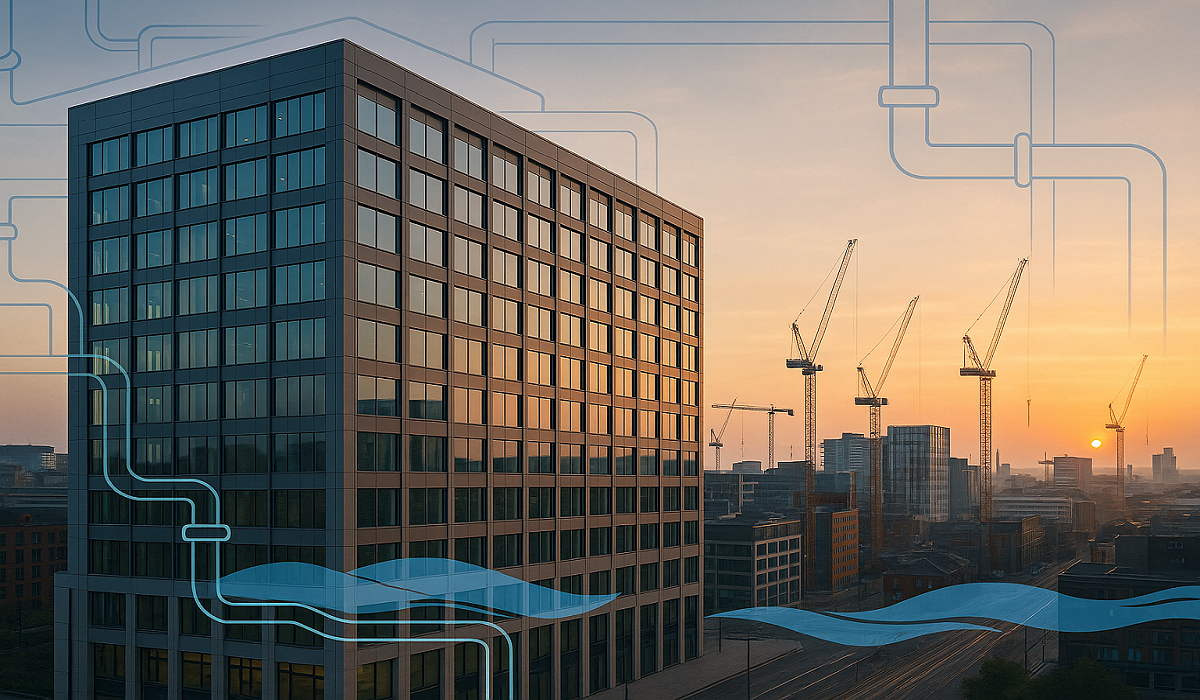Sheffield is evolving fast. New housing developments, business parks, hospitality upgrades and commercial refurbishments are reshaping the city at pace. This rapid growth is fantastic for the local economy, but it brings pressure too especially on commercial plumbing infrastructure.
As buildings scale upward and occupancy increases, outdated plumbing systems struggle to cope. For businesses, schools, retail units, care facilities and office developments, this can mean expensive downtime, compliance issues and water inefficiencies.
Forward thinking commercial plumbing solutions aren’t just beneficial in a growing city like Sheffield, they’re becoming essential. And this is where working with an experienced commercial plumber Sheffield trusts can make all the difference.
How Urban Growth Strains Commercial Plumbing
- Higher Demand on Existing Water Systems
Older commercial properties weren’t built to handle today’s usage levels. More staff, customers and longer operating hours mean:
- Reduced water pressure
- Higher risk of pipe failures Overworked heating and hot water systems
- Increased Construction Disturbances
New developments can affect underground pipe stability. Changes to the ground, roadworks and added weight from new builds sometimes lead to:
- Misaligned drainage
- Cracked underground pipework
- Unexpected leaks or blockages
- Tougher Compliance and Efficiency Expectations
Modern commercial buildings must meet stricter standards for:
- Water hygiene (Legionella safety)
- Sustainability and energy efficiency
- Backflow prevention
- Commercial waste drainage
Failing to meet these can lead to financial penalties and business interruption.
Why Traditional Plumbing Fixes No Longer Work
Reactive plumbing might work in a small property, but for commercial buildings it creates:
- Higher long term costs
- Repeated emergency callouts
- Operational disruption
- Health and safety risks
What Sheffield now needs is a strategic approach based on prevention, scalability and efficiency.
Smarter Plumbing Solutions Commercial Buildings Need in 2025 – 2026 and Beyond
Water usage mapping and demand forecasting
Understanding peak usage times prevents pressure drops and pipe fatigue.
High capacity hot water systems
Especially critical for gyms, care homes, restaurants and hospitality settings.
Non ivasive leak detection
Stops hidden water loss before it escalates into structural damage.
Drain resilience planning
Essential in buildings managing high wastewater volumes like:
- Food outlets
- Medical facilities
- Shopping centres
- Employee heavy office spaces
Water efficiency upgrades
This reduces:
- Operational costs
- Waste
- Carbon footprint
These local conditions make it even more important for businesses to work with specialists who understand Sheffield’s unique commercial plumbing landscape.
Plumbing Network has worked across a wide range of local commercial facilities, giving us firsthand insight into what works, what doesn’t and what lasts.
Key Questions Sheffield Businesses Are Asking
Can urban growth really affect my building’s plumbing?
Yes. Increased water demand and nearby construction can impact pressure, pipe stability and drainage flow.
What are the first signs a commercial system is struggling?
Low pressure, slow drainage, fluctuating water temperature, unusual smells and rising water bills.
How can I reduce unexpected plumbing downtime?
By introducing scheduled maintenance, leak monitoring and load balancing assessments.
Is upgrading plumbing expensive?
Planned upgrades cost significantly less than emergency pipe failures, closures or water damage repairs.
Do commercial buildings require different systems than residential ones?
Absolutely. They require high volume water handling, compliance led planning, and durability grade materials.
How do I choose the right commercial plumber?
Look for proven experience, compliance knowledge, long term planning capability and local infrastructure understanding.
How often should commercial plumbing be inspected?
At least twice a year, with more frequent checks for high traffic facilities.
What plumbing issues are most common in Sheffield commercial buildings?
Limescale buildup, blockages, pressure inconsistency and ageing infrastructure fatigue.
How can I reduce water costs in a commercial property?
Install water efficient fixtures, monitor for leaks, descale systems and review consumption patterns.
What regulations must commercial plumbing meet in the UK?
Legionella risk assessments, Water Supply (Water Fittings) Regulations 1999, backflow prevention and drainage compliance.
Can commercial plumbing upgrades be done without shutting the business?
Yes, with phased planning and low disruption installation scheduling.
How do I prevent recurring drain blockages?
Install commercial grade filtration traps, schedule drain jetting and educate staff on waste disposal.
How to improve water pressure in a commercial building?
Conduct system diagnostics, install booster pumps if required, and address pipe scaling or blockages.
How to prepare plumbing for building expansion?
Undertake future demand modelling, install capacity ready systems and map infrastructure limitations.
Final Thoughts
Sheffield’s growth is exciting, but the plumbing systems supporting its commercial buildings must evolve with it. The businesses that thrive in the coming years will be the ones investing in resilient, scalable and intelligent plumbing solutions now not when something goes wrong.
With deep local knowledge and commercial expertise, Plumbing Network is helping Sheffield businesses modernise their plumbing infrastructure to match the city’s ambition.
Need expert commercial plumbing support in Sheffield?
Whether you need compliance support, system upgrades, maintenance planning or emergency response, our team is here to help. Visit Plumbing Network or connect with us today to protect your building, your operations and your peace of mind.


Leave a Reply